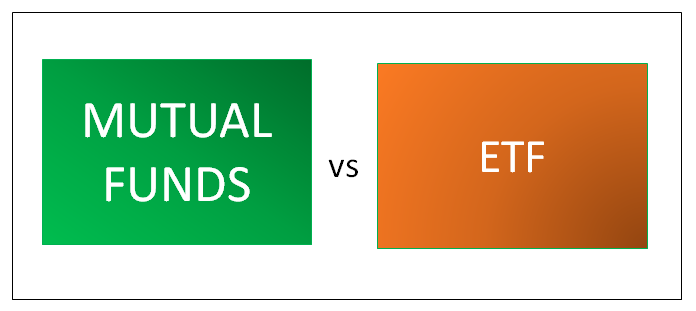If you have a 401k or 403b retirement plan through your employer, then you probably have your funds invested in Mutual Funds, likely managed by the likes of Fidelity, Vanguard, or other well-known fund portfolio managers. If you have a regular “taxable” investment account, perhaps you own Exchange Traded Funds, such as an S&P 500 Index Funds. Mutual Funds and ETFs are both own baskets of stocks that are managed by either real human beings (likely for mutual funds) or even computers (possibly in the case of ETFs). However, there are important differences between the two types of investment vehicles. What are the differences and how do the differences impact the way you invest?

Who is the Counterparty?
The main difference is the counterparty to your purchase or sale. When you buy or sell a mutual fund, from whom do you buy or sell it, and same for an ETF? For a mutual fund, you buy and sell shares in the fund directly from the fund manager. A mutual fund has a ticker symbol and you might route an order through an exchange, but the seller or buyer of your order is the fund itself, not some other investor. With an ETF, however, you buy and sell shares over an exchange such as the NYSE, just like you would any other stock.
Open-End/Closed-End
You buy mutual fund shares directly from the manager because a mutual fund is an Open-End fund, meaning there is no limit to the number of shares the fund can have outstanding. You buy shares in an ETF through a stock exchange because an ETF is a Closed-End fund, meaning the number of shares outstanding is finite and the price of the fund will fluctuate based on the demand for those shares – price goes up as demand goes up.
End of the Day vs. Any Time
Another difference that falls from the Open-End/Closed-End issue is that you can buy or sell ETF shares at any time during the trading day, but you can only buy or sell mutual fund shares at the end of each trading day, after the Net Asset Value for that day is calculated. That means you can’t “day-trade” mutual fund shares, nor can you dump them in the middle of the day if the market is crashing. You have to wait until the end of the day to buy or sell a mutual fund. This is not really a problem if you own mutual funds in your retirement account because they are long-term investments.
Costs
Mutual Funds typically are more expensive. They have higher “load” fees and/or management fees, typically because they are more hands-on in terms of management. Mutual Funds can be very specialized in terms of economic sectors or industries or even geographical regions, and so if you like any of these specialized areas to outperform, you can play that hunch more easily by using a mutual fund. ETF’s are less expensive because they typically are set to mirror an index that is out there, and they are therefore less management-intensive, even to the point of being run by an algorithm or a computer. ETF’s are more general, and so it is more difficult to play any specific industry or sector by using an ETF, although such specialized ETF’s are becoming more common.
IMO
As I alluded to at the start of this posting, holding mutual funds in your retirement account are fine, typically because that’s all you might be able to hold in that account as deemed by your retirement account trustee. ETF’s are getting a lot of ink because they have lower costs, are becoming more innovative and more specialized, and because they are more “liquid” because you don’t have to wait until the end of the trading day to transact. I am not taking sides in this debate. My only point is to inform you about the differences between mutual funds and ETF’s and help you understand what you can and cannot do with them.
